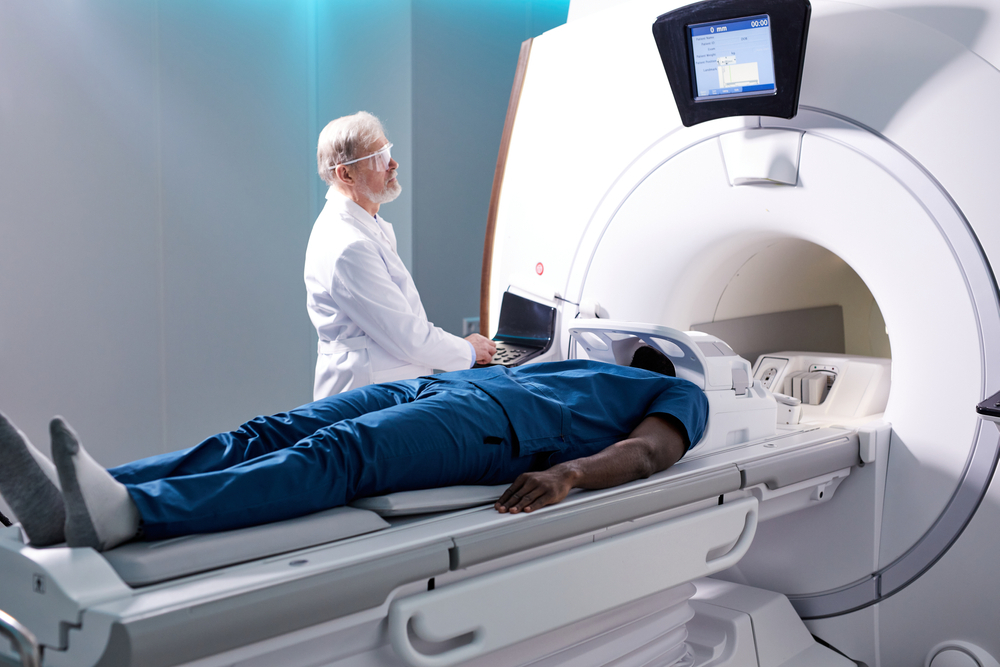MRI is a medical imaging technique that uses strong magnetic fields and radio waves to create detailed images of the body. MRI scans are commonly used to diagnose a wide range of medical conditions, including injuries, tumors, and neurological disorders. However, there are concerns about the safety of MRI scans, particularly regarding their potential effects on the body’s tissues and organs. In this article, we will review the available evidence on the safety of MRI scans and provide an overview of the risks and benefits associated with this imaging technique.
What is an MRI scan?
An MRI scan is a non-invasive medical imaging technique that uses strong magnetic fields and radio waves to create detailed images of the body’s internal structures. Unlike X-rays, which use ionizing radiation to create images, MRI scans are based on the interaction between magnetic fields and hydrogen atoms in the body’s tissues. When a patient undergoes an MRI scan near me, they are placed inside a large, cylindrical machine that contains a powerful magnet. The magnetic field causes the hydrogen atoms in the body’s tissues to align in a particular way, and radio waves are then used to disrupt this alignment. As the hydrogen atoms realign, they emit radio signals that are detected by the MRI machine and used to create detailed images of the body’s internal structures.
How MRI Works
MRI works by creating a strong magnetic field around the body, which aligns the protons in the body’s atoms. Radiofrequency waves are then used to disrupt the alignment of the protons, causing them to emit signals that can be detected by the MRI machine. The signals are then processed by a computer to create detailed images of the body’s internal structures.
Is MRI Safe?
MRI is considered a safe medical imaging technique with no known harmful side effects. Unlike X-ray and CT scan, which use ionizing radiation, MRI uses magnetic fields and radio waves to produce images, which do not pose a risk of radiation exposure. Additionally, the procedure is non-invasive, which means it does not require any incisions or injections, further reducing the risk of complications.
However, there are some potential risks associated with MRI. For example, patients with certain medical conditions, such as kidney problems, may be at risk of developing a rare condition called nephrogenic systemic fibrosis (NSF) after receiving a contrast agent during an MRI. NSF can cause skin thickening and internal organ damage, although it is a very rare occurrence. Patients with a history of allergic reactions to contrast agents should inform their doctor before undergoing an MRI.
Another potential risk associated with Breast MRI is the presence of metal in the body. The strong magnetic fields used in MRI can cause metal objects in the body to move or heat up, which can be dangerous. Patients with pacemakers, aneurysm clips, cochlear implants, and other metal objects in the body may not be able to undergo an MRI. It is important to inform the MRI technician of any metal objects in the body before the procedure.
What to Expect During an MRI
MRI scans typically take 30-60 minutes to complete, depending on the body part being imaged. Patients will be asked to lie still on a padded table, which will slide into the MRI machine. The machine is a large cylindrical tube with a hole in the center, which can be a source of anxiety for some patients. However, modern MRI machines are designed to be quieter and less confining than older machines, and some facilities offer open MRI machines that are less claustrophobic.
Patients may be given a contrast agent before the MRI to help enhance the images. The contrast agent is usually administered through an IV and may cause a warm sensation in the body or a metallic taste in the mouth.
How to Find the Best MRI Scan Near You
If you require an MRI scan, it is important to find a reputable facility that offers high-quality imaging services. Here are some tips for finding the best MRI scan near you:
- Ask your doctor for a referral: Your primary care physician or specialist can refer you to a facility that offers MRI services. They may have specific recommendations based on your medical history and imaging needs.
- Check online reviews: Check online reviews for MRI facilities in your area to see what other patients have said about their experiences. Look for facilities with positive reviews and a high overall rating.
- Consider the facility’s accreditation: Look for an MRI facility that is accredited by a recognized organization such as the American College of Radiology (ACR). Accreditation indicates that the facility has met high standards for safety and image quality.
- Look for advanced imaging technology: Look for a facility that uses advanced MRI technology, such as 3T MRI or functional MRI (fMRI), which can provide more detailed and accurate images.
- Check for insurance coverage: Check with your insurance provider to see if the facility is covered by your plan. Some facilities may offer discounts or payment plans for uninsured or underinsured patients.
Conclusion
MRI is a safe and widely used medical imaging technique that provides detailed images of internal structures in the body. While there are some potential risks associated with the procedure, these risks are very low, and most people who undergo MRI do not experience any complications. Patients should inform their doctor of any medical conditions or metal objects in the body before undergoing an MRI.
Tags: MRI scan








